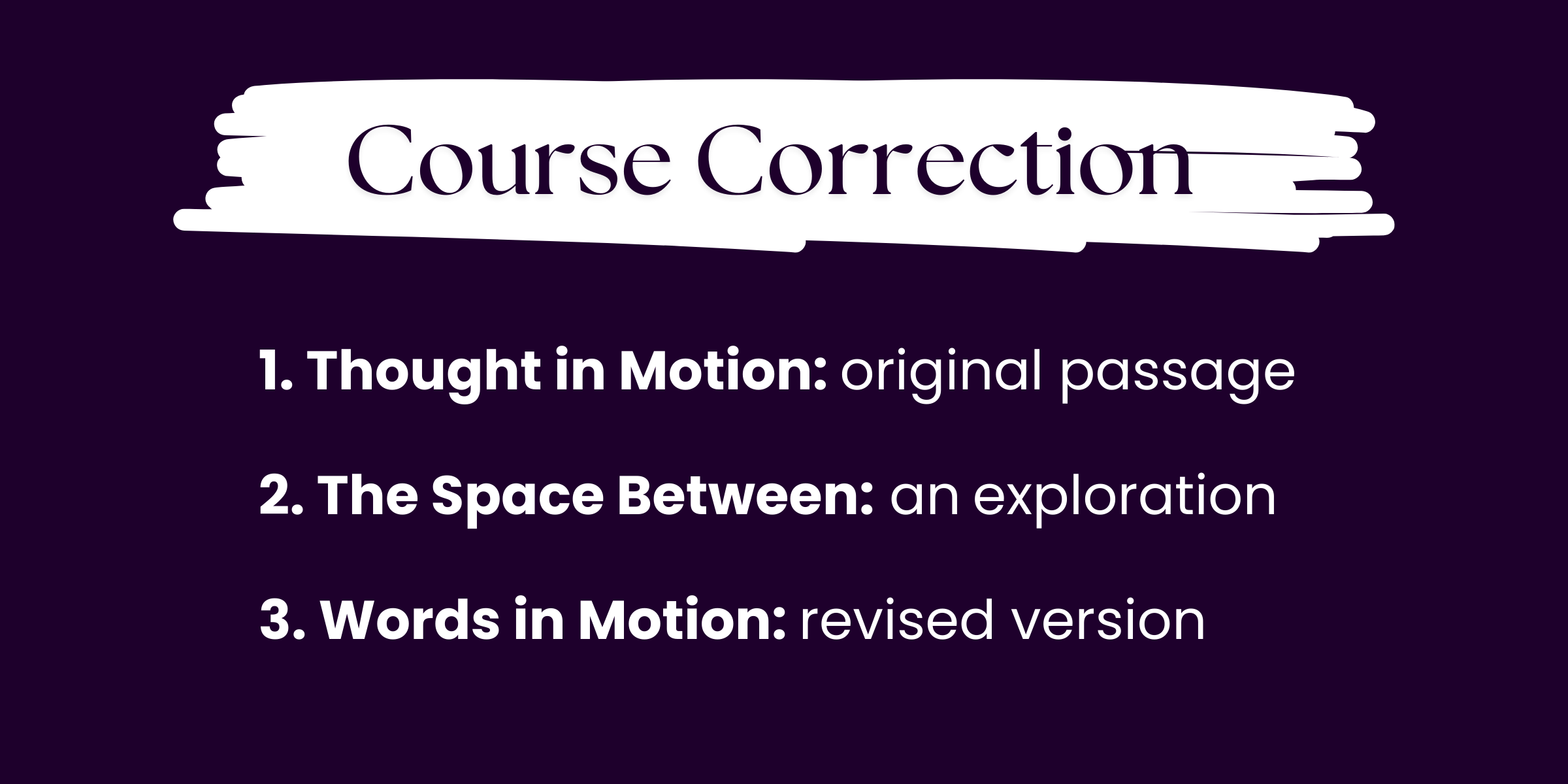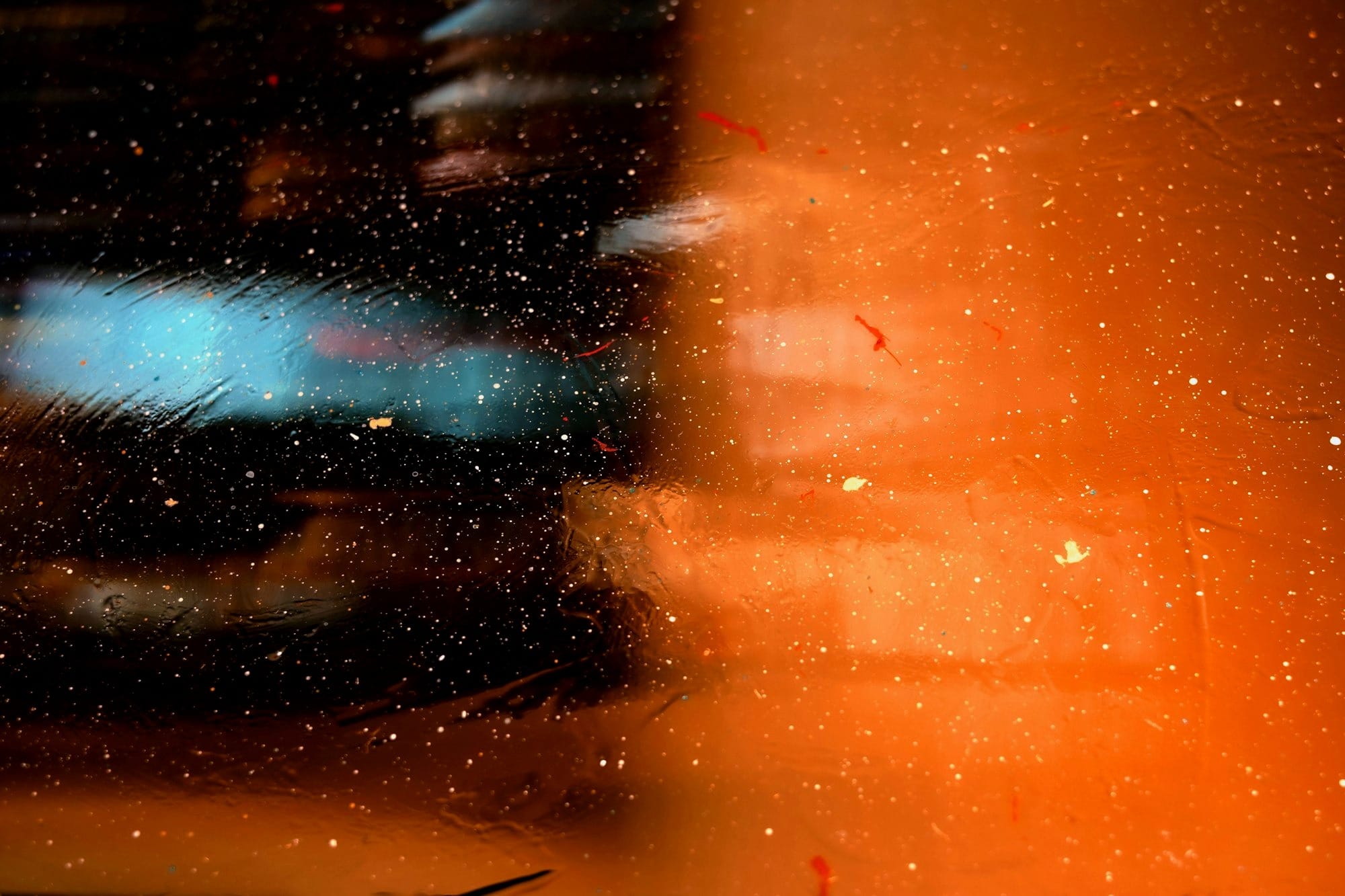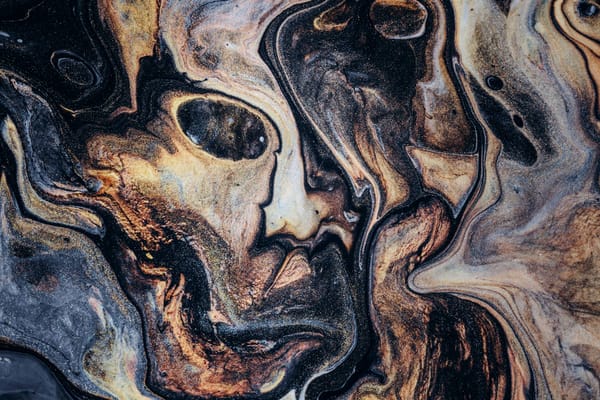Sculpting AI’s Stillness: 'The Shape of Silence' Recast
Tracing the delicate currents of tension, explore how enhancing AI storytelling can electrify connection with tactile, evocative writing.


1. Thought in Motion
The café was nearly empty, save for the rain against the windows and the low hum of jazz in the background. Daniel traced the rim of his cup, the ceramic warm against his fingertips. Across from him, Theo turned a sugar packet over in his hands, nails bitten down to nothing.
"It’s been a while," Theo said. His voice was light, almost casual, but there was something tight in the way he held himself.
Daniel nodded. "Two years."
Theo exhaled. "That long?"
Neither of them mentioned the in-between. The missed calls. The messages half-written, unsent.
Theo cleared his throat. "I saw your name in a byline the other day. Almost messaged you."
"You should have."
Theo smiled, but it didn’t reach his eyes. "Would you have answered?"
Daniel didn’t answer. Outside, the rain blurred headlights into streaks of gold and red.
Theo sighed, shaking his head. "You always wanted everything said aloud. And I—" He hesitated. "I was never good at that."
Daniel studied him. The tiredness around his eyes, the way his fingers curled slightly against the tabletop, like he was bracing for something.
"You didn’t have to say it," Daniel murmured.
Theo looked down. "Maybe that was the problem."
A long silence. Then, carefully, Daniel reached across the table, fingertips brushing Theo’s wrist.
Theo didn’t move. Didn’t pull away.
The rain softened.
2. The Space Between
The above story—or rather, the scene—was generated by an AI model, prompted to capture tension in its most creative form. The result is intriguing, with the writing echoing the evocative simplicity of Sally Rooney or Bryan Washington.
That said, the scene lacks enough substance to truly satisfy the growing sense of hunger it provokes. The ending, in particular, is where things begin to fall apart.
Since the goal is to electrify the connection between the two men and dig into the longing that's reeled them back in, abruptly diffusing any sort of tension introduces an element of cliché or artifice. In real life, agreement doesn't follow confession, and touch doesn't undo the obstacle of the body.
To flesh out the scene, we could weave recurring elements into it, giving non-animate objects and background features a tangible role in the dance between two bodies yearning to relearn each other.
The dialogue is already painfully stilted, so we can experiment with more physical tension, making the story tactile and explorative.
Essentially, by drawing on the subtle, invisible threads connecting Daniel and Theo, we can allow the intimacy of the scene to pulse quietly in the background. This way, we bring the reader to the edge of the experience, inviting them to share in the ache that defines the men's movements.

3. Words in Motion
The café’s stillness echoed with the tapping of rain against glass. In the background, a saxophone whined softly. Daniel’s thumb traced the rim of his cup, the ceramic warm against his fingertip. Across from him, Theo sat fiddling with a sugar packet, nails bitten down to nothing.
"It’s been a while.” Theo’s voice was light, almost airy, but there was something involuntary in the press of his finger into the swell of paper in his hand.
Daniel nodded. "Two years."
An exhale. "That long?"
Neither of them mentioned the in-between. The ignored calls. The messages half-written, half-honest.
Theo glanced up, then away. He cleared his throat. "I saw your name in a byline the other day. Almost messaged you."
"You should have."
A smile flashed in the corner of Theo’s mouth, brief but insistent. Daniel’s gaze lingered.
"Would you have answered?" Theo rasped.
Daniel’s hand slid down his cup, now cool. His gaze wandered out the window, where rain blurred headlights into streaks of gold and blood.
A long silence followed, drawing out the wail of the saxophone. Theo sighed into it, remembering how their bodies once spoke in the quiet—when their cheeks were still plump and every movement a lamentation of teenage lust.
"You always wanted everything said out loud. But I—" He hesitated. "I’ve never been good at that."
Daniel studied him. The familiar creases around his eyes, the way his hands curved around the muscle of his thighs, like he was bracing for something that wasn’t Daniel’s weight.
"You didn’t have to say it," he murmured.
Dark eyes dropped to the swell of Daniel's lips, bitten and raw. Then, carefully, he reached across the table, fingertips skimming the damp sugar packet lying forgotten between them.
He focused on the burn of Theo’s gaze along his cheek as his thumb traced the familiar imprint of a touch left behind. As the saxophone’s moan sank into stillness, Daniel caught the sigh of his name, drawn low and wanting.




